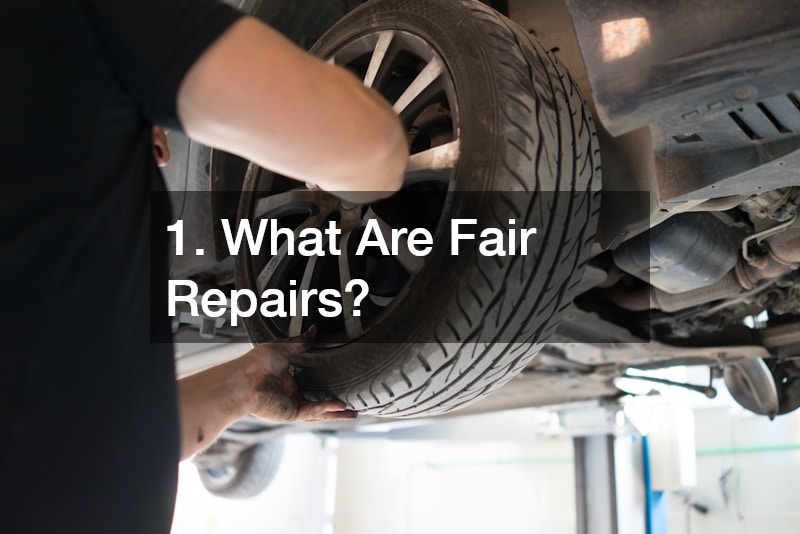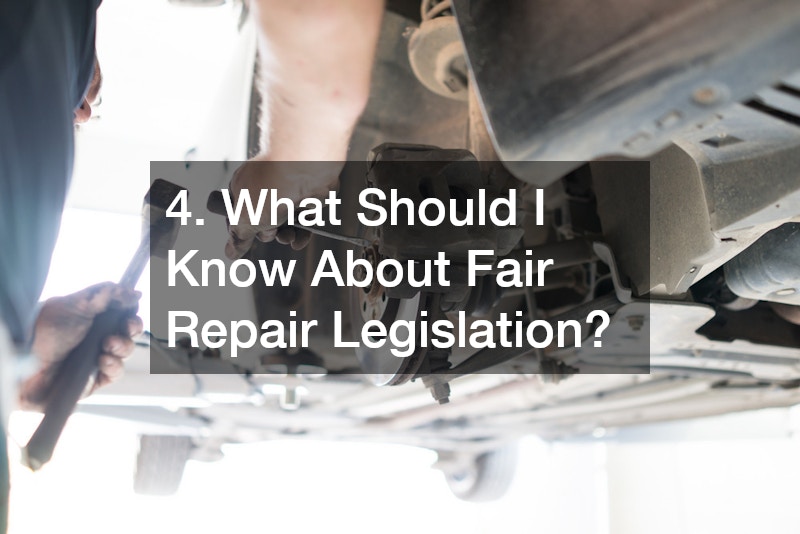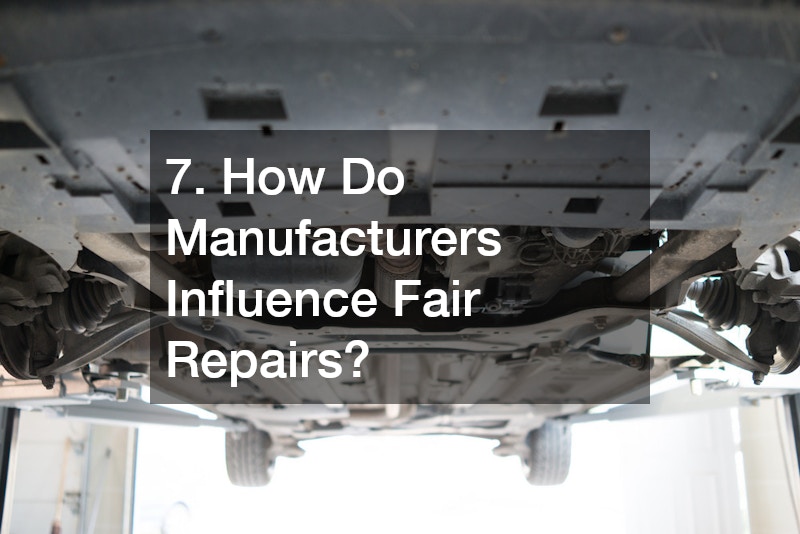Exploring the importance and nuances of fair repairs in the automotive industry, this article delves into frequently asked questions about fair repair practices, guidelines, and rights. Fair repairs encompass practices that ensure all vehicle owners receive high-quality service without overpaying or being subject to unnecessary repairs. Understanding these facts empowers vehicle owners to make informed decisions about maintaining and repairing their vehicles, ultimately fostering reliability and satisfaction. As the automotive industry becomes increasingly complex with new technology, understanding rights related to fair repairs becomes crucial. Whether you’re visiting an auto collision repair service or a local auto body shop, knowing what constitutes a fair repair is vital to protect your investment. This article aims to uncover layers of fair repair practices by discussing various aspects, including legislation, benefits, and challenges, providing a comprehensive view to vehicle owners.
1. What Are Fair Repairs?

Fair repairs refer to a set of practices and principles that ensure consumers receive adequate and necessary services when seeking vehicle repairs. When dealing with auto collision repair, fair repairs ensure that the work is performed with transparency, integrity, and honesty, avoiding overcharging and addressing only the damages that affect the vehicle’s functionality and safety. Every repair transaction should be clear, with no hidden fees or surprise costs, guaranteeing the consumer’s peace of mind.
In the context of fair repairs, transparency also means providing consumers with detailed invoices and complete explanations of the work performed. This goes beyond simple transactions, empowering vehicle owners to understand exactly what is being repaired and why. Whether dealing with emergency vehicle lights or more routine maintenance tasks, knowing what fair repairs involve can prevent misunderstandings and enhance customer trust.
Moreover, fair repairs require a commitment to using quality parts and materials, akin to what one would expect at a trusted local auto body shop. The integrity of a repair depends not only on the work performed but also on the components used, impacting long-term reliability. Fair repairs are integral to the automotive repair culture, prioritizing accountability and trust between service providers and customers.
2. Why Are Fair Repair Costs Essential?
Fair repair costs are essential because they directly impact the sustainability and fairness of the automotive repair industry. Overcharging or unnecessary services can erode trust and lead to long-term financial ramifications for vehicle owners. Whether at a local auto body shop or through an auto glass replacement service, transparent pricing structures are a cornerstone of fair repairs.
Fair repair costs encourage healthy competition among service providers, pushing them to offer quality services at reasonable prices. This competition ensures that auto collision repair services and other types of maintenance remain accessible to a broad range of consumers. As a result, fair repair costs play a crucial role in maintaining balance within the market, promoting efficiency, and enhancing customer satisfaction.
Additionally, understanding and advocating for fair repair costs can empower consumers and ensure they are not being taken advantage of. It promotes informed decision-making, where consumers feel confident in the value they receive for their money, no matter the service, whether installing a car audio accessory or dealing with a more complex issue. The significance of fair repair costs cannot be overstated, driving the need for knowledgeable consumers and ethical providers.
3. How Do Fair Repairs Benefit Vehicle Owners?
Fair repairs offer a multitude of benefits to vehicle owners, primarily focusing on ensuring reliability and safety. When services like auto glass replacement are conducted under fair repair principles, consumers can trust that the repairs are not only necessary but also executed to a high standard. This assurance minimizes the risk of future problems and optimizes vehicle performance.
Fair repairs also contribute to cost-effectiveness, allowing consumers to maintain vehicles within budget constraints while still knowing safety and quality are not compromised. Owners benefit financially by avoiding unwarranted expenses and by extending the life of their vehicles through well-executed repairs. In turn, this fosters greater consumer confidence in the repair industry as a whole.
Moreover, fair repairs are crucial for preserving the value of the vehicle. This is especially important for consumers who might consider the resale value of the car in the future. By ensuring that all repairs are done by ethical standards, vehicle owners maintain a higher resale value, benefiting financially when it’s time to sell or trade in their vehicle, whether it’s an average sedan or a fleet truck.
4. What Should I Know About Fair Repair Legislation?

Fair repair legislation is designed to protect consumer rights by mandating transparency and fairness within the repair industry. This legislation ensures that vehicle owners have access to all necessary information regarding the parts and services provided. When it comes to services like installing a car audio accessory, legislation requires that consumers are not exploited through monopolistic practices or exorbitantly priced parts.
Fair repair laws often address the availability of parts and information, ensuring independent repair shops can compete on a level playing field with manufacturer-authorized service centers. This accessibility promotes more affordable and convenient options for consumers, further upholding the value of fair repairs. For instance, legislation may require manufacturers to make essential parts available to local repair shops, empowering consumers with more choices.
Understanding fair repair legislation is crucial for consumers looking to advocate for their rights effectively. It provides a framework within which consumers can challenge unfair practices and seek redress if necessary. This awareness is vital, especially when navigating complex scenarios like dealing with a car accident attorney or ensuring quality after an accident repair.
5. How Can I Ensure I’m Getting Fair Repairs?
Ensuring you’re getting fair repairs starts with research and selecting a reputable service provider. Reading reviews and seeking recommendations for a local auto body shop or specialist services like auto collision repair can offer insights into the reliability and fairness of their practices. Transparency in their communication and detailed estimates before repairs begin can signal a trustworthy establishment committed to fair repairs.
Another step is to remain informed about your rights as a consumer. Knowing what to expect and what is required from repair services can empower you to ask the right questions. Have a checklist of common practices that align with fair repairs and evaluate quotes against industry standards to prevent being overcharged or underserved.
It may also help to consult a car accident attorney for guidance if there’s any hesitation about the legitimacy of charges or repair needs after an incident. Legal advice can often clarify whether services offered align with fair repair principles and your consumer rights. Being proactive in these steps enhances your assurance that fair repairs are being conducted.
6. What Are Common Barriers to Fair Repairs?
Common barriers to fair repairs include a lack of transparency, access to necessary parts, and innovative diagnostic and repair technologies. Some providers might not provide complete information or may obscure the necessity of certain auto collision repair services, leading to mistrust or inadequate repairs. Transparency issues can create significant hurdles in understanding and achieving fair repairs.
Access to quality parts can also be hindered by manufacturers who prefer to distribute components only through certain channels, limiting access for independent repair shops. This unavailability can drive costs up and restrict consumers’ options, impacting fairness in repairs. Ensuring that emergency vehicle lights and other critical parts are accessible to all service providers is a recurring industry challenge.
Another barrier involves the technological complexity of modern vehicles, making fair repairs more challenging. As vehicles become more sophisticated, repair facilities need to be equally advanced, requiring investments in training and equipment. This technological gap, without industry-wide support, can serve as a barrier, making it tougher to ensure fair repairs across all service levels.
7. How Do Manufacturers Influence Fair Repairs?

Manufacturers heavily influence fair repairs through their control of parts, training, and information necessary for repairs. By dictating the terms of how vehicle components are distributed, they can affect the balance of competition between authorized providers and independent shops. This monopolization can limit access to fair pricing and repair options for consumers.
Manufacturers also impact fair repairs by requiring specific training and certifications for mechanics working on their vehicles. While this ensures a high standard of work, it can also drive up costs if only certain shops are certified, reducing the number of options available to consumers seeking fair repairs. When dealing with nuanced repairs like those requiring specialized equipment or hand car washes, these imbalances become pronounced.
Furthermore, manufacturers’ influence extends to technological advancements that are sometimes only compatible with their service networks. This can pressure consumers into using more expensive, manufacturer-backed repair services instead of more accessible local options.
8. What Is the Role of Technology in Fair Repairs?
Technology plays a pivotal role in the effectiveness and execution of fair repairs. Modern diagnostics and repair technologies can significantly enhance the precision and reliability of services offered. Advanced tools allow for in-depth, accurate assessments in areas such as auto glass replacement and complex electronic systems, promising better outcomes for consumers.
However, this technology can also serve as a barrier if not universally accessible, creating disparities in quality and service availability. Service providers equipped with cutting-edge tools and technologies are often able to perform faster, more accurate repairs, but these advantages can widen the gap between different repair shops. Ensuring fair repairs requires equitable access to these technological advancements for all service providers.
At the same time, technology can empower consumers by facilitating better understanding and communication of repair processes. For instance, digital platforms and apps can furnish vehicle owners with details about repairs, costs, and expected outcomes, enhancing transparency and trust.
9. Are There Differences in Fair Repairs Across Regions?
Fair repairs can vary significantly between different regions due to a variety of factors, including regulations, market demands, and resource availability. Regional legislation can influence what is considered a fair repair, affecting how services like towing service and towing and recovery equipment service are regulated and priced. These differences highlight the need for consumers to be aware of their rights and available standards locally.
Economic factors in different regions can also impact the feasibility of fair repairs, influencing costs and accessibility of services. In high-demand areas, local auto body shops may charge more based on market competition and resource scarcity. Understanding regional dynamics is thus crucial in navigating and advocating for fair repairs.
Additionally, cultural attitudes toward repairs and maintenance can vary, affecting consumer demands and expectations. In some areas, there might be a greater focus on high-end detailing, such as hand car washes, while others prioritize budget-conscious options.
10. What Future Trends Are Impacting Fair Repairs?

Future trends in the automotive industry are poised to significantly influence fair repairs, with technology at the forefront. Electric and hybrid vehicles, for instance, present new challenges that require specialized knowledge and equipment, impacting how fair repairs are defined and executed. This shift may lead to an overhaul of qualifications and standards required for services, including fleet truck repair.
The rise of digital platforms enables more data-driven approaches to vehicle maintenance and repairs. Enhanced data analytics allow for predictive maintenance strategies, which can preempt problems and streamline the repair process. This technological evolution can optimize fair repairs by increasing efficiency and reliability, improving overall satisfaction for consumers.
Additionally, environmental considerations are becoming increasingly important, influencing how repair shops operate and what consumers expect. The push for environmentally friendly practices may shape repair protocols, emphasizing sustainability alongside fairness.
Knowing These Fair Repairs Facts
Understanding the dynamics of fair repairs can greatly influence consumer satisfaction and trust in the automotive sector. By remaining informed about rights, practices, and the evolving landscape, vehicle owners can advocate for fair repair rights, ensuring accountability and better service from repair shops and manufacturers alike. The journey through fair repairs spans legislation, consumer attitudes, technological advancements, and regional disparities, emphasizing the need for comprehensive knowledge and diligent advocacy in the pursuit of equitable repair practices. Staying informed and proactive is not only necessary for individual benefit but also significant in shaping an industry that prioritizes fairness and transparency. As we look towards the future, it is essential to continue fostering discussions and developments geared towards enhancing fair repairs in the automotive realm.



